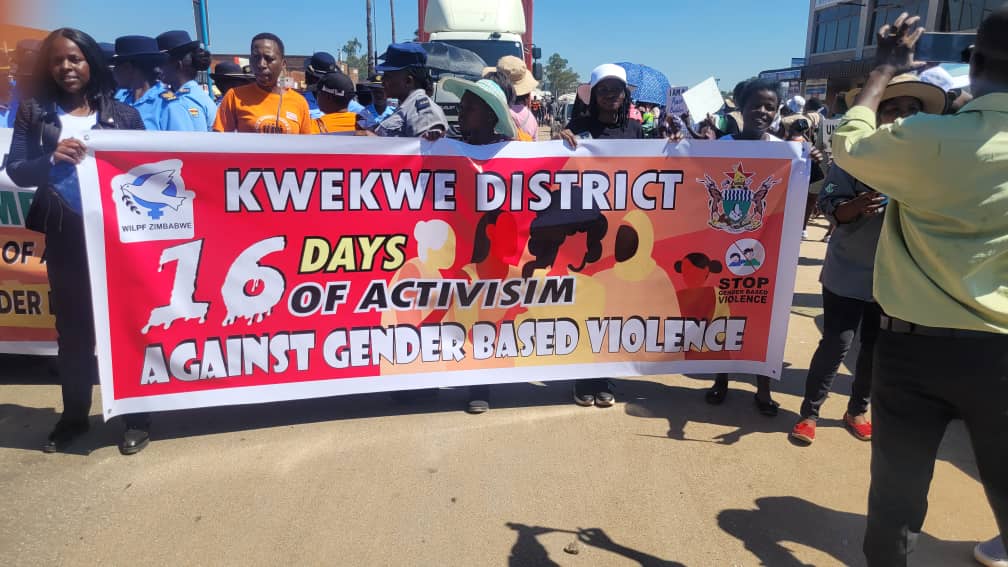By Cordilia Ncube
The Kwekwe District Development Coordinator, Fortune Mupungu, has called for intensified efforts to address gender-based violence (GBV) by fostering male engagement and leveraging the influence of traditional leaders.
Speaking during the recently held 16 Days of Activism Against Gender-Based Violence campaign, Mupungu highlighted the urgent need to address alarming statistics and societal norms that perpetuate violence.
“Despite the progress made over the past three decades, we continue to witness alarming rates of gender-based violence. The Multiple Indicator Cluster Survey shows that 42.5% of women have experienced physical or sexual violence in their lifetime,” Mupungu said, emphasizing that these numbers represent real lives forever changed by GBV.
Mupungu stressed the importance of involving men and boys in GBV prevention.
“As Kwekwe district, we need to strengthen male engagement by redefining harmful notions of past masculinity that perpetuated violence while fostering a culture of respect and equality,” he said.
The District Coordinator clarified that male engagement does not imply that men are the sole perpetrators of GBV.
“We have also witnessed cases of gender-based violence perpetrated by women against men. It is therefore essential to emphasize that GBV is unacceptable in all its forms, regardless of who the perpetrator may be,” Mupungu said, calling for a collective effort to end the cycle of violence in all its forms.
He said the district is taking strides to improve GBV prevention and response services.
Mupungu highlighted the availability of a one-stop center at Kwekwe General Hospital, which offers comprehensive support for survivors. Additionally, several community initiatives have been conducted in rural and urban areas to raise awareness and provide resources for GBV prevention.
Traditional and religious leaders were praised for their role in addressing GBV.
“Your influence in communities is profound and meaningful. As trusted leaders, you have the unique ability to shape attitudes, challenge harmful norms, and foster supportive environments where survivors feel empowered to speak out and seek help,” Mupungu said.
He encouraged traditional leaders to engage in open dialogues within their communities, helping to dismantle societal barriers that often prevent survivors from coming forward. Their leadership, he added, can inspire grassroots strategies that promote justice, respect, and equality.
Mupungu rallyied for collective action.
“I urge each one of you to take action against GBV within your spheres of influence. Whether through advocacy, education, or small acts of solidarity, your efforts count. Together, we can create a world where every individual can live without fear and in gender equality,” he said.



